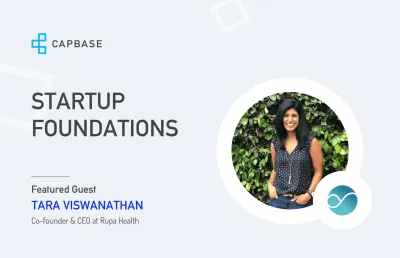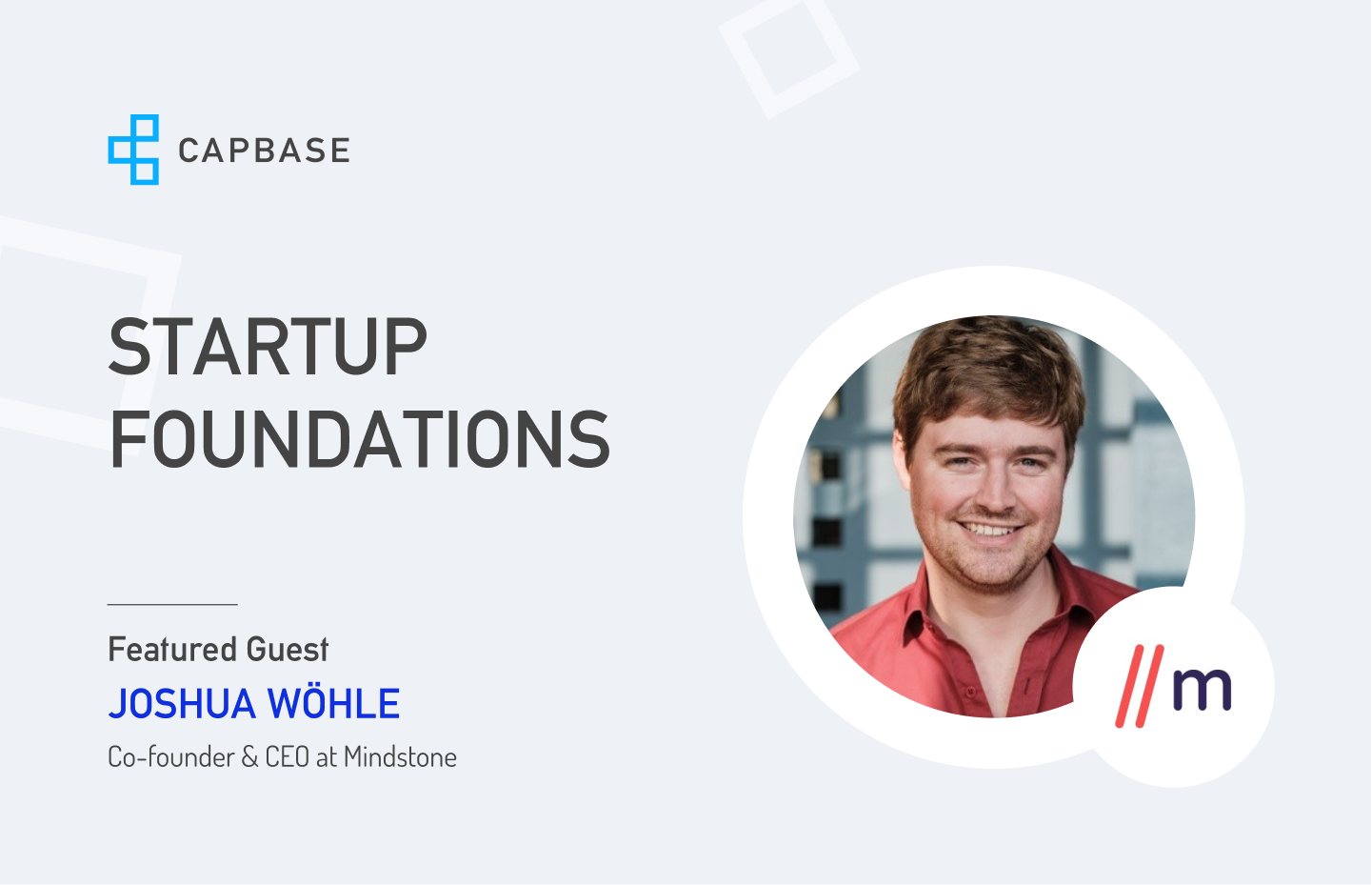Joshua Wöhle is a London-based founder and serial entrepreneur, currently building Mindstone — a platform helping people become better learners. Joshua has previously co-founded and successfully exited Super Awesome, a company that developed data protection and compliance tools for children using online platforms and games.
Joshua talked to us about his startup journey, and shared interesting insights into the history of London becoming the biggest startup hub in Europe. We also dive deeper into the issue of equity compensation differences between Europe and Silicon Valley,
Greg: Tell us what you're working on at Mindstone.
Joshua: Mindstone, we're trying to build a platform that allows anyone to create a course by curating a playlist from the best articles, podcasts, videos, or any other resource, really that you can find online, publishing that as a course, and then allowing anybody to learn from that and get certified in various skills.
G: How did you find your first users for Mindstone?
J: The first ones were just connections that I already had. Mindstone wasn't the first business I built. I was a part of a bunch of different founder communities and founders are definitely of the type that like to learn a lot. And so I had a lot of people that I knew that were interested in learning from content that was already available online. That was initially what we started with.
And then we just had a very simple kind of trickle of Google AdWords. And the reason we had that was that it would allow us to test different types of positioning, different value propositions, and also optimize our landing page for the right type of messaging so people could clearly understand what we were doing and really run a bunch of tests to optimize for that.
G: What was the biggest lesson you learned from those initial tests?
J: The biggest thing that we learned was to use the language your users use, not the language that you think describes your offering best.
We did a lot of user interviews. Over last year alone, we did over 300. Most of them were done on Zoom, so we ended up using all the transcript of those interviews.
And then we used a text analysis engine on the transcripts to identify which were the words that people used when they themselves tried to explain what we were about.
Once we used those words on our landing page, we saw a conversion rate more than 10 times bigger than what we had before.
G: How have you seen the ecosystem for startups change in the time you've been in London? It's grown into a big hub of investing in Europe and the amount invested is much larger every year.
The change has been pretty dramatic to be honest. When I came to London about 11 years ago, it was initially my computer science degree. I stuck around after seeing the startup ecosystem take off and knowing I wanted to be part of early stage companies and build something from the ground up.
It became pretty clear that London was light years ahead of any other startup ecosystem in Europe. I already had convinced my wife to move to London with me, I couldn't really convince her to go all the way to San Francisco at the time, but London was a good compromise for both of us there.
G: How would you differentiate the startup ecosystem in London from Germany, for example?
J: Just like for a startup, there is a point where you hit escape velocity where your value proposition is so compelling that people start to flock towards it. And pre-Brexit, that is something that happened in London where a combination of the investment environment, incentivizing checks in early companies, which meant that more people got involved in funding early companies, which meant more early companies got created. There was a big event space that was spun out around that. And actually the government did quite a bit to try and help with that as well.
It just became better and better, which then meant that an enormous amount of people in continental Europe, if they were, this was pre working from home. There was still a very big component of moving to where the companies were. So you had, I'd say most of the best developers, those that were really clear on the fact they wanted to build something from the ground up, they moved to London to do it knowing that there were more people like them in the same area.
So then the problem is you had this massive magnet of talent that enabled London to grow really fast. Brexit has put a big spanner in the work there, made it much harder because fewer people now want to move to London, but you now have the effect of founders having built big businesses that are then exited and that are reinvesting back into the ecosystem, which translates in the current investment numbers where just London blows any other startup hub in Europe completely out of the water in terms of number, the funds invested in the creation of new companies. It's an interesting virtuous cycle, which is just hard to replicate anywhere else, now that it has happened, if that makes sense.
G: You've founded a couple companies now, how much of the company did you give up or allocate for employee ownership? Is it 10%? Is it 20%? Is it 30%?
J: So it depends on the type of company. And it depends on the timeline. I'd say that over time, there are two aspects to this. One is what does the company allocate? The other is what do people value? And I actually think it's a mistake to disassociate those two because in the valley, it's not just that people get allocated more options, it's that people go to the valley and ask and negotiate for an option package valuing those options and thinking about those options is part of their overall compensation package.
Whilst in most cases in Europe, people come to a compensation package and they look at their salary and then they look at their options and they consider them as lottery tickets as if they're worth nothing. And they say, great, I want my big salary and I want this nice little thing that I don't really value that much, but hey, it's to get something for free.
That's the way that often an option discussion gets approached in Europe. Like I've actually made the mistake in the past wanting to allocate more options, thinking that like someone had a decently high salary and thought, okay, you know what, what is really important is to give this person more options so that they feel more involved with the business, then allocating them options worth tens of thousands, if not, in some cases, hundreds of thousands of pounds, only to realize a few months later that they're interested by an employment offer somewhere else that gives them 5,000 pounds more, a yearly salary. Because they have entirely discounted the option package that came with it.
G: Why do you think that is? From my experience, most employees in Europe choose to maximize salary instead of options.
Absolutely. And this comes back to the ecosystem question, which is that if you're talking to people who know people that have actually had liquidity out of their options, and this is part of the discussion that happens at the dinner table when they're with their friends or anything, then that becomes something they ask for. But the fewer people you have in the ecosystem that have gone through that, the fewer of those conversations that happen and the more it gets seen as something that is just a big promise that never actually materializes.
And that is another reason why what is happening in London now is so interesting because you have more and more people that have stories, that have been part of startups, that had an option allocation and that are now telling themselves, ah shit, if only I had negotiated for more options rather than for more salary, if only I had optimized for the options, then they would've had a bigger return and those conversations are happening now.
So the new people coming in are more exposed to those conversations and are starting to be more attuned to optimizing for them. So we're doing the exact same thing as what you're doing at Mindstone, we've now gone around compensation packages as pure numbers. And then the candidate gets to decide how much of that number they want to take in options and how much they want to take in pure cash. But it allows us to have a conversation, the same conversation with every person joining the company and they get to decide how much of that they want to tie to the future of the company and how much of that they want to take into cash.
G: Thanks for the words of wisdom.
J: Thank you very much for having me!

RELATED
Startup Foundations: Interview with Tara Viswanathan
Read our interview with Tara Viswanathan, co-founder of Rupa Health, a company modernizing the process of ordering specialty labwork.
 by
by 